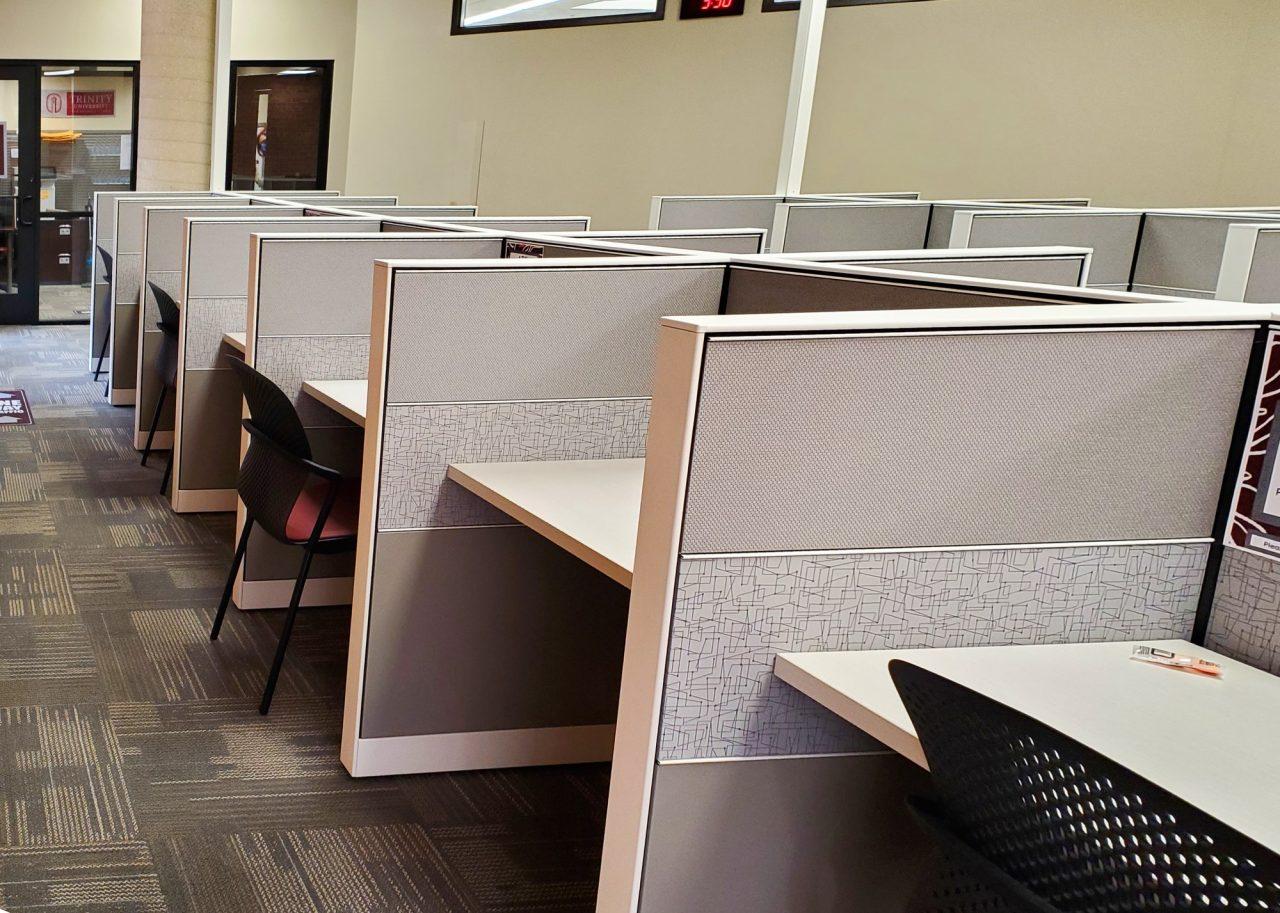Social distancing and quarantining are tough on most people. We are unable to see those we love most in person or old hobbies have to be put on hold ,which can be detrimental to our mental health. For those who are at risk for COVID or immunocompromised these issues are heightened. For those who are able-bodied the risk to break CDC guidelines seems to have fewer consequences but many disabled people cannot take these risks. The struggles able-bodied people like not seeing friends, using Zoom, or missing going out are struggles disabled people face, but the issues are even more complex because disabled people face added stresses.
“Online learning has been tough in terms of staying focused and zoom fatigue. But I think one aspect of it is pretty heavily ignored by most people- the fact that it can be beneficial for students with disabilities. Not having to physically walk to class can be helpful for students who have a hard time getting out of bed or have physical symptoms that require a lot of rest,” says Martina Ashby and junior Human Communications major. Using zoom for online classes has its pros and cons. On the one hand, online classes allows people to revisit lectures, but it can also amplify feelings of isolation. Junior Elena Buffington explains “the major aspect of online classes working for me is being able to attend class at times my disability would have made it difficult for me to attend in-person.” Professors recording Zoom sessions and putting them online can make it much easier for people to access them at a later date and fully absorb the information. This advantage, though, is reliant on professors understanding that Zoom recordings aren’t a way to skip class, it is a way for students to watch the lecture when their health allows them to fully pay attention. Junior sociology major Melina Raab explains that online classes are difficult with ADHD, but ultimately they work because she doesn’t have to miss class.
“Every couple of weeks I get infusions, it’s six hours for two days. And so like, on one hand, that really sucks because it’s boring. But since it’s online classes, I don’t necessarily have to miss my classes,” says Melina Raab.
Universities, as they adapt to online learning, are finding new ways to help disabled students, and hopefully, these techniques will continue to benefit students, even when classrooms are completely open again. Zoom classes can also increase feelings of isolation. The personal attention students receive in small classes, which Trinity prides itself on, is hindered. It is difficult for professors to split their attention between zoom and the classroom.
COVID-19 is taking a large emotional toll on students. “I think like everyone, I’ve been really isolated. But I also didn’t really have the chance or the freedom to live off-campus, or go back to San Antonio and live with friends,” says Emma Melina Raab. While many people decided to live off-campus in San Antonio this fall, this was not a safe option for many people. Even for those who are not seeing friends and not making non-essential errands; people still have to go to work, which inadvertently exposes people and their roommates to COVID-19. For Melina Raab, staying home where her siblings and mother are learning and working from home was the safest option.
Even for those who were able to come back to San Antonio, it is difficult to adjust to this new way of living. Ashby says, “I think one of the most pressing things for me right now is that a pandemic is isolating. It isolates you from friends, teachers, and significant others. It forces you to stay away from everyone but your core circle.” Maintaining relationships, even with the use of social media, can be difficult, especially for those experiencing mental health issues.
Professors and students can play a major part in helping disabled students. Melina Raab says, “just like being understanding that, you know, not only are they dealing with the anxiety and the stress that an able-bodied student is dealing with, but also like, the stress that comes with being disabled, both mentally and physically.” In discussions about equity, disabled people are often forgotten, but COVID is highlighting where our misunderstanding are surrounding ability. Buffington says, “peers can help disabled students affected by COVID by being understanding and empathetic to how COVID may be impacting their disabilities. This could just be making an effort to reach out and check-in on their peers/friends with disabilities.”







